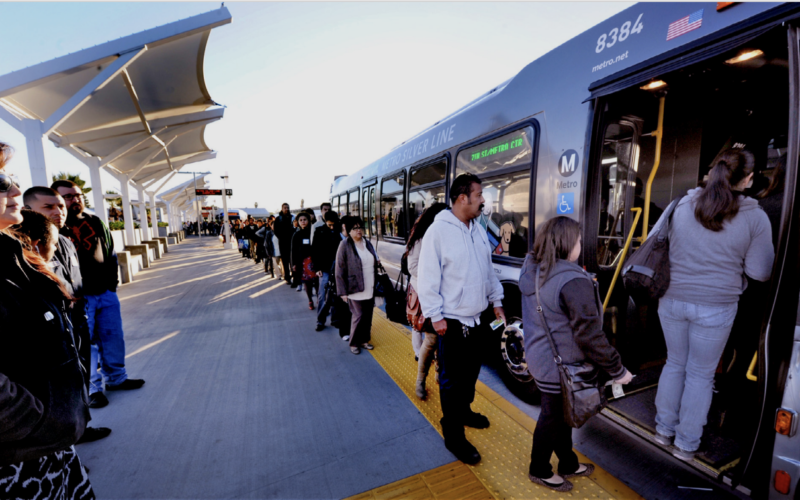
Fifty-five percent of transit riders in the U.S. are women. Yet women are not represented in leadership or executive decision-making positions in the numbers they should be. TransitCenter’s Women Changing Transportation (WCT) program began in 2019 as an effort to highlight and rectify that disconnect. The program is igniting change by fostering community among women in the transportation field and recognizing the shared challenges of misogyny faced in a field dominated by men and masculine-normative ideals of success.
We’re thrilled to release the first issue of Subtext, a zine created by members of the Women Changing Transportation cohort. Subtext is an effort to create space for women to share their stories and experiences of working in the transportation field in their own words, through the mediums that most resonate with them.
Transportation faces many of the same challenges as other fields – women are underrepresented at the executive level and in other senior leadership positions. For the women who are in positions of leadership, success comes with the additional burden being the other, the only in the room. This often means assimilating to what society has deemed “professional,” and internalizing historical definitions of what one needs to do and be to achieve that success. And while women are expected to assimilate into these societal (often white and male) definitions of professionalism, achievement, and leadership, they are also expected to do the often invisible and gendered work as the team caregiver, educator, and nurturer.
The pieces written by Kimberly Ford, Monica Tibbits-Nutt, and Kimberly Lucas speak to how women experience these professional and personal challenges. In Kim Ford’s poem, Value Us, she writes about experiences of Black, Indigenous, Women of Color in the workplace. Two Sides of the Same Token similarly grapples with Kim Lucas’ experience as a mixed race woman advancing in the transportation field and how that intersects with the field’s recent focus on equity. Monica Tibbits-Nutt takes a creative approach to exploring women’s leadership – telling the story of two women, each working on urban and transportation issues, at different moments in history. And Maryann Aguirre’s playlist concludes the zine by lifting and inspiring readers with movement-inspired music.
In order to change notions of what one needs to do and be to achieve success and to be inclusive of different styles of and people in leadership, we need to first acknowledge existing inequities. We hope this first issue helps to make some of the subtext explicit, and the invisible visible.
 “Who Rules Transit?” Chronicles the Gulf Between “Who Decides” and “Who Rides” at Transit Agencies
“Who Rules Transit?” Chronicles the Gulf Between “Who Decides” and “Who Rides” at Transit Agencies
Our latest report reveals a yawning gap between the demographics of transit riders – primarily women and people of color – and leadership at transit agencies – primarily white men.
Read More Women Changing Transportation: The Conversations
Women Changing Transportation: The Conversations
The Women Changing Transportation program is pleased to present the second installment of videos from our conversation series.
Read More